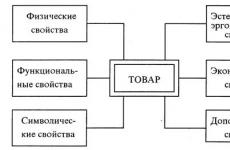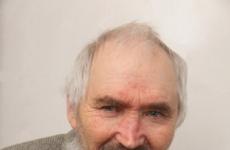Ivan Turgenev - Truth and Truth (Prose Poem): Verse. "truth and truth
Why do you value the immortality of the soul so much? I asked.
Why? Because then I will possess the eternal, undoubted Truth... And this, in my understanding, is the highest bliss!
In possession of Truth?
Of course.
Let; can you imagine the next scene? Several young people have gathered, talking among themselves ... And suddenly one of their comrades runs in: his eyes shine with an unusual brilliance, he is choking with delight, he can hardly speak. "What is it? What is it?" - "My friends, listen to what I learned, what a truth! The angle of incidence is equal to the angle of reflection! Or here's another: between two points the most shortcut- a straight line!" - "Really! oh, what bliss!” all the young people shout, tenderly throwing themselves into each other’s arms! You are not able to imagine such a scene? Truth can. This is a human, our earthly affair... Truth and Justice! I am ready to die for Truth. All life is built on the knowledge of Truth; but how is it to "possess it"? And even find bliss in it?
Why do you value the immortality of the soul so much? I asked.
Why? Because then I will possess the eternal, undoubted Truth... And this, in my understanding, is the highest bliss!
In possession of Truth?
Of course.
Let; can you imagine the next scene? Several young people have gathered, talking among themselves ... And suddenly one of their comrades runs in: his eyes shine with an unusual brilliance, he is choking with delight, he can hardly speak. "What? What?" - “My friends, listen to what I have learned, what a truth! The angle of incidence is equal to the angle of reflection! Or here's another: between two points, the shortest path is a straight line! - “Really! oh, what a blessing! - shout all the young people, tenderly rush into each other's arms! Can't you imagine such a scene? You're laughing... That's just the point: the Truth cannot deliver bliss... Here the Truth can. This is a human, our earthly affair… Truth and Justice! For Truth, I agree to die. On the knowledge of the Truth, all life is built; but how is it to "possess it"? Yes still find in this bliss?
Lesson type: speech development lesson.
To reveal the originality of the Russian concept “Pravda”, in which two meanings coincided: truth as objective truth and truth as internal justice.
Lesson objectives:
- To develop thinking in the system of spiritual and moral concepts of students.
- To promote the development of the ability to explore, analyze, compare, generalize.
Equipment:
Handout, decorated board, Gorky's memoirs about Chekhov, the text of the poem in Turgenev's prose "Truth and Truth", V. Zakrutkin's story "Mother of Man".
During the classes
1. Teacher's word
Truth is the spiritual basis of life, it is eternal, imperishable, infinite. Truth is hidden from people, it is sought, comprehended with the mind and heart. Truth makes it possible to seek answers to questions: the world is created or not created, evil or good is at the basis of creation, the world is finite or infinite, man is mortal or immortal.
Truth is present in all forms of worldview: science, religion, philosophy, art, in the ordinary consciousness of people. Goodness, Beauty, Truth - these are the cornerstones of any worldview in the hierarchy of spiritual values.
Why do you think?
(Good is a moral value, Beauty is aesthetic, Truth is cognitive)
2. Complete task number 1 on the sheet. Restore the minitext using the suggested model.
The spiritual quest of a person is connected with the search for .... . Spiritual life is based on ideas of goodness and..., beauty and..., truth and....
So, in Russian the lexical pair TRUTH and PRAVDA correspond to the philosophical concept of Truth.
And I am adding a question to which we have to find an answer: What is more important for a Russian person: truth or truth?
3. Lexical work.
- Let's turn to " explanatory dictionary Russian language” by S.I. Ozhegov and recall the meaning of some words that we will use in the dialogue.
Worldview - a system of views, views on nature and society.
Mentality - (bookish) worldview, mindset. The mentality of the Russian people.
Mental - (bookish) relating to mental activity, the mind. mental abilities.
Morality - internal, spiritual qualities that guide a person, ethical standards; rules of conduct determined by these qualities.
Truth - 1. In philosophy: an adequate reflection in the mind of what exists objectively. Objective truth. The pursuit of truth.
2. Same as true in 1 value.
Truth - 1. What exists in reality corresponds to the real state of affairs. Tell the truth. The truth hurts the eyes.
2. Justice, honesty, a just cause. Seek the truth. stand for the truth.
4. Creation of a comparative portrait of truth and truth.
- Pay attention to the word "truth" in the second sense. With Ozhegov, this is the same as the truth.
– But in the language of the Russian people there is a saying: “ The truth is good, and the truth is not bad.”
- In the meaning of which conjunction is the conjunction "yes" used? What did the Russian people mean by opposing truth to truth?
– Make a comparative portrait of truth and truth. Complete task #2.
TASK #2
Think about how unusual this offer is. Underline all nouns denoting abstract concepts and related to the spiritual (inner) world of a person. What are the three highest spiritual values that form a person's worldview (a system of views on nature and society).
A person fights for freedom and justice, seeks the truth, serves it, sacrificing himself for the common good, strives for goodness and beauty and enters into an argument with fate, which deceives him or justifies his hopes.
- Determine the verbal portrait of Truth, truth.
– Which of the two concepts is cold, abstract, universal? (True)
- What is Truth? (individual, personal)
5. Work with the “Dictionary of the Living Great Russian Language” by V.I.Dal.
Let's take a look at the "Dictionary of the Living Great Russian Language" by V.I.Dal.
TRUTH refers to the mind and intelligence. The good in the image is the truth (i.e. accessible to the concept).
Truth is from the earth, and truth is from heaven.
TRUTH - the truth in deed, the truth in the image, in the good.
– Pay attention to the complex and contradictory nature of the concepts of TRUTH and TRUTH in Russian culture. Let's try to comprehend their interaction from the point of view of the Russian mentality, with the help of Russian literature.
- As an epigraph to the first literary episode, I propose a Russian folk saying: "The truth is good, and the truth is not bad."
6. Analysis of Turgenev's text "Truth and Truth".
- let's read a poem in the prose of I.S. Turgenev "Truth and Truth."
– Why do you value the immortality of the soul so much? I asked.
- Why? Because then I will possess the eternal, undoubted Truth... And this, in my understanding, is the highest bliss!
– In possession of the Truth?
- Of course.
- Allow me; can you imagine the next scene? Several young people have gathered, talking among themselves ... And suddenly one of their comrades runs in: his eyes shine with an unusual brilliance, he is choking with delight, he can hardly speak. "What? What?" “My friends, listen to what I have learned, what a truth! The angle of incidence is equal to the angle of reflection! Or here's another: between two points, the shortest path is a straight line!” – “Really! Oh, what bliss!” - all the young people shout, tenderly throwing themselves into each other's arms! Can't you imagine such a scene? You're laughing... That's just the point: the Truth cannot deliver bliss... Here the Truth can. This is a human, our earthly affair… Truth and Justice! For Truth, I agree to die. On the knowledge of the Truth, all life is built; but how is it to "possess it"? And still find bliss in this?
- With what concept does Turgenev connect the word Truth? (fairness)
- Make a conclusion by proving the correctness of the saying "The truth is good, and the truth is not bad."
7. Analysis of an excerpt from the memoirs of M. Gorky about Chekhov.
The Russian people have another saying: "Every Paul has his own truth." And let it become the epigraph to the second literary episode.
Recall the plot of Chekhov's story "Intruder".
- And now let's read an excerpt from M. Gorky's memoirs about Chekhov.
M. Gorky, in his memoirs of Chekhov, reproduces a dialogue between a young lawyer and the author of "Intruder":
“I found a young, handsome comrade prosecutor with him. He stood in front of Chekhov and, shaking his curly head, said briskly:
- With the story "Intruder", you, Anton Pavlovich, put before me an extremely difficult question. If I recognize in Denis Grigoriev the presence of an evil will that acted consciously, I must, without reservation, put Denis in prison, as the interests of society require. But he is a savage, he did not realize the criminality of his deed, I feel sorry for him! If, however, I treat him as a subject who acted without understanding, and succumb to a feeling of compassion, how can I guarantee society that Denis will not unscrew the nuts on the rails again and will not cause a crash? Here is the question! How to be?
He fell silent, threw his body back and stared into Anton Pavlovich's face with a searching look. His uniform was brand new, and the buttons on his chest shone as self-confidently and stupidly as the eyes on the clean face of a young zealot for justice.
“If I were a judge,” Anton Pavlovich said seriously, “I would acquit Denis…
- On what basis?
- I would tell him: “You, Denis, have not yet matured to the type of a conscious criminal, go ahead and mature!”
The lawyer laughed, but immediately became solemnly serious again and continued:
- No, dear Anton Pavlovich, the question you have raised can only be resolved in the interests of society, whose life and property I am called upon to protect. Denis is a savage, yes, but he is a criminal, that's the truth!
- Do you like the gramophone? Anton Pavlovich suddenly asked affectionately.
- Oh yeah! Highly! Amazing invention! the young man responded briskly.
“But I can’t stand gramophones!” Anton Pavlovich admitted sadly.
- Why?
- Yes, they speak and sing without feeling anything. And all of them come out caricatured, dead…”
- Whose position - a young prosecutor or a writer - is closer to you and why?
– Why does Chekhov interrupt his interlocutor and frivolously ask about the gramophone when a lawyer talks about the interests of society and his duty to protect them?
(Chekhov argues that the main interest of society is not to send the person who unscrewed the screw to hard labor, but to develop the consciousness of people, and that only under this condition can society assume the right to judge a person who has violated the law. But the guest, taking Chekhov's words as a joke, continues to repeat his solemn truths.
- Why did both Gorky and we, the readers, accept Chekhov's truth without hesitation?
(Chekhov stands for truth-justice, the prosecutor stands for truth-truth.)
8. Analysis of an episode from V. Zakrutkin's story "The Mother of Man"
The good in the image is the truth (i.e., accessible to the concept). And the truth is the truth in deed, the truth in the image, in the good - says V.I.Dal. “Truth is from the earth, and truth is from heaven,” says folk wisdom.
- Remember the story of V. Zakrutkin "The Mother of Man". What is this piece about?
- I propose to dwell on one of the important scenes: Mary's meeting with a wounded German soldier (reading the scene from the words “Hatred and hot, blind malice swept over Mary…” to words “… boyish eyes wet with tears…”)
How do you understand Mary's unexpected decision?
– How to separate the truth from the truth in this scene?
- How, using the example of the truth of a Russian woman, crying, suffering, grieving, can you explain Dahl's definition of "Truth is the truth in deed"?
Mary acts according to justice, and therefore, according to her conscience. That is, according to their inner law, the law of the soul and heart. This act is dictated by the truth from heaven, i.e. truth based on moral laws. And for her now the truth is in practice - this is not an enemy - a killer, but a mortally wounded boy who sees her mother in her and asks for help and mercy.
9. Conclusion.
- So what is more important for a Russian person: Truth or Truth?
Maybe someone is ready to argue with the wording of the question of the topic of the lesson?
10 Bottom line.
To the question “What is more important?” there is no clear answer. Truth belongs to the "higher" world, eternal, and the truth belongs to the "lower" world, changeable. Therefore, truth is superior to truth. It would be more correct to ask the question: what is closer to a Russian person? Of course it's true.
Russian people are obsessed with love for Truth-justice. For the Russian mentality - Truth - justice - is a moral category, and only mercy can be higher than it.
Homework (differentiated)
TASK #1
It is known that the world is dual. The real and ideal images of the world are opposed in four ways:
- temporary and eternal;
- changeable and unchangeable;
– observable and invisible;
- imaginary and real.
Divide pairs of antonyms into four appropriate groups. Underline in each pair the word that expresses one of the signs of Truth.
Perishable (dust, decay) and imperishable; the world below and the world above; finite and infinite; fluid and immovable; ultimate and beyond; illusory and authentic; sensual and supersensible; mortal and immortal; wavering and unshakable; visible and speculative (intelligible); open (explicit) and hidden; anomaly and norms (ideal); fake and true; phenomenon and essence; abyss and hardness.
TASK #2
One of the most popular allegories in art - "Truth is the daughter of time" - shows the Father - Time, removing the veil from the naked figure of Truth. How do you understand this allegorical plot?
Which of the following attributes: hourglass, sail, sun, mirror, mask, scales, laurel wreath - do you associate with the allegorical figure of Truth and why?
Write an essay "Truth is the daughter of time."
Why do you value the immortality of the soul so much? I asked. - Why? Because then I will possess the eternal, undoubted Truth... And this, in my understanding, is the highest bliss! — In possession of the Truth?- Of course. - Allow me; can you imagine the next scene? Several young people have gathered, talking among themselves ... And suddenly one of their comrades runs in: his eyes shine with an unusual brilliance, he is choking with delight, he can hardly speak. "What? What?" “My friends, listen to what I have learned, what a truth! The angle of incidence is equal to the angle of reflection! Or here's another: between two points, the shortest path is a straight line! “Really! oh, what a blessing! - all the young people shout, tenderly throwing themselves into each other's arms! Can't you imagine such a scene? You're laughing... That's the point: Truth cannot deliver bliss... The Truth can. This is a human, our earthly affair... Truth and Justice! For Truth, I agree to die. On the knowledge of the Truth, all life is built; but how is it to "possess it"? And still find bliss in this? June, 1882This work has entered the public domain. The work was written by an author who died more than seventy years ago, and was published during his lifetime or posthumously, but more than seventy years have also passed since publication. It can be freely used by anyone without anyone's consent or permission and without payment of royalties.
Target
To reveal the originality of the Russian concept “Pravda”, in which two meanings coincided: truth as objective truth and truth as internal justice.
Lesson objectives:
- To develop thinking in the system of spiritual and moral concepts of students.
- To promote the development of the ability to explore, analyze, compare, generalize.
Handout, decorated board, Gorky's memoirs about Chekhov, the text of the poem in Turgenev's prose "Truth and Truth", V. Zakrutkin's story "Mother of Man".
During the classes
1. Teacher's word
Truth is the spiritual basis of life, it is eternal, imperishable, infinite. Truth is hidden from people, it is sought, comprehended with the mind and heart. Truth makes it possible to seek answers to questions: the world is created or not created, evil or good is at the basis of creation, the world is finite or infinite, man is mortal or immortal.Truth is present in all forms of worldview: science, religion, philosophy, art, in the ordinary consciousness of people. Goodness, Beauty, Truth - these are the cornerstones of any worldview in the hierarchy of spiritual values.
Why do you think?
(Good is a moral value, Beauty is aesthetic, Truth is cognitive)
2. Complete task number 1 on the sheet. Restore the minitext using the suggested model.
The spiritual quest of a person is connected with the search for .... . Spiritual life is based on ideas of goodness and..., beauty and..., truth and....So, in Russian the lexical pair TRUTH and PRAVDA correspond to the philosophical concept of Truth.
And I am adding a question to which we have to find an answer: What is more important for a Russian person: truth or truth?
3. Lexical work.
- Let's turn to S.I. Ozhegov's "Explanatory Dictionary of the Russian Language" and recall the meaning of some words that we will use in the dialogue.Worldview - a system of views, views on nature and society.
Mentality - (bookish) worldview, mindset. The mentality of the Russian people.
Mental - (bookish) relating to mental activity, the mind. mental abilities.
Morality - internal, spiritual qualities that guide a person, ethical standards; rules of conduct determined by these qualities.
Truth - 1. In philosophy: an adequate reflection in the mind of what exists objectively. Objective truth. The pursuit of truth.
2. Same as true in 1 value.
Truth - 1. What exists in reality corresponds to the real state of affairs. Tell the truth. The truth hurts the eyes.
2. Justice, honesty, a just cause. Seek the truth. stand for the truth.
4. Creation of a comparative portrait of truth and truth.
- Pay attention to the word "truth" in the second sense. With Ozhegov, this is the same as the truth.– But in the language of the Russian people there is a saying: “ The truth is good, and the truth is not bad.”
- In the meaning of which conjunction is the conjunction "yes" used? What did the Russian people mean by opposing truth to truth?
– Make a comparative portrait of truth and truth. Complete task #2.
TASK #2
Think about how unusual this offer is. Underline all nouns denoting abstract concepts and related to the spiritual (inner) world of a person. What are the three highest spiritual values that form a person's worldview (a system of views on nature and society).
A person fights for freedom and justice, seeks the truth, serves it, sacrificing himself for the common good, strives for goodness and beauty and enters into an argument with fate, which deceives him or justifies his hopes.
- Determine the verbal portrait of Truth, truth.
– Which of the two concepts is cold, abstract, universal? (True)
- What is Truth? (individual, personal)
5. Work with the “Dictionary of the Living Great Russian Language” by V.I.Dal.
Let's take a look at the "Dictionary of the Living Great Russian Language" by V.I.Dal.TRUTH refers to the mind and intelligence. The good in the image is the truth (i.e. accessible to the concept).
Truth is from earth and truth is from heaven.
TRUTH - the truth in deed, the truth in the image, in the good.
– Pay attention to the complex and contradictory nature of the concepts of TRUTH and TRUTH in Russian culture. Let's try to comprehend their interaction from the point of view of the Russian mentality, with the help of Russian literature.
- As an epigraph to the first literary episode, I propose a Russian folk saying: "The truth is good, and the truth is not bad."
6. Analysis of Turgenev's text "Truth and Truth".
- let's read a poem in the prose of I.S. Turgenev "Truth and Truth."– Why do you value the immortality of the soul so much? I asked.
- Why? Because then I will possess the eternal, undoubted Truth... And this, in my understanding, is the highest bliss!
– In possession of the Truth?
- Of course.
- Allow me; can you imagine the next scene? Several young people have gathered, talking among themselves ... And suddenly one of their comrades runs in: his eyes shine with an unusual brilliance, he is choking with delight, he can hardly speak. "What? What?" “My friends, listen to what I have learned, what a truth! The angle of incidence is equal to the angle of reflection! Or here's another: between two points, the shortest path is a straight line!” – “Really! Oh, what bliss!” - all the young people shout, tenderly throwing themselves into each other's arms! Can't you imagine such a scene? You're laughing... That's just the point: the Truth cannot deliver bliss... Here the Truth can. This is a human, our earthly affair… Truth and Justice! For Truth, I agree to die. On the knowledge of the Truth, all life is built; but how is it to "possess it"? And still find bliss in this?
June, 1882
– How does the author distinguish between truth and truth?
- With what concept does Turgenev connect the word Truth? (fairness)
- Make a conclusion by proving the correctness of the saying "The truth is good, and the truth is not bad."
(In the Russian mind, truth is a scientific category, and truth is a moral one; it is closely connected with the idea of ideal human relationships. This truth is justice.)
7. Analysis of an excerpt from the memoirs of M. Gorky about Chekhov.
The Russian people have another saying: "Every Paul has his own truth." And let it become the epigraph to the second literary episode.Recall the plot of Chekhov's story "Intruder".
- And now let's read an excerpt from M. Gorky's memoirs about Chekhov.
M. Gorky, in his memoirs of Chekhov, reproduces a dialogue between a young lawyer and the author of "Intruder":
“I found a young, handsome comrade prosecutor with him. He stood in front of Chekhov and, shaking his curly head, said briskly:
- With the story "Intruder", you, Anton Pavlovich, put before me an extremely difficult question. If I recognize in Denis Grigoriev the presence of an evil will that acted consciously, I must, without reservation, put Denis in prison, as the interests of society require. But he is a savage, he did not realize the criminality of his deed, I feel sorry for him! If, however, I treat him as a subject who acted without understanding, and succumb to a feeling of compassion, how can I guarantee society that Denis will not unscrew the nuts on the rails again and will not cause a crash? Here is the question! How to be?
He fell silent, threw his body back and stared into Anton Pavlovich's face with a searching look. His uniform was brand new, and the buttons on his chest shone as self-confidently and stupidly as the eyes on the clean face of a young zealot for justice.
“If I were a judge,” Anton Pavlovich said seriously, “I would acquit Denis…
- On what basis?
- I would tell him: “You, Denis, have not yet matured to the type of a conscious criminal, go ahead and mature!”
The lawyer laughed, but immediately became solemnly serious again and continued:
- No, dear Anton Pavlovich, the question you have raised can only be resolved in the interests of society, whose life and property I am called upon to protect. Denis is a savage, yes, but he is a criminal, that's the truth!
- Do you like the gramophone? Anton Pavlovich suddenly asked affectionately.
- Oh yeah! Highly! Amazing iso...
|
ATTENTION! The text you are viewing methodological material cut by a third (33%)! |






